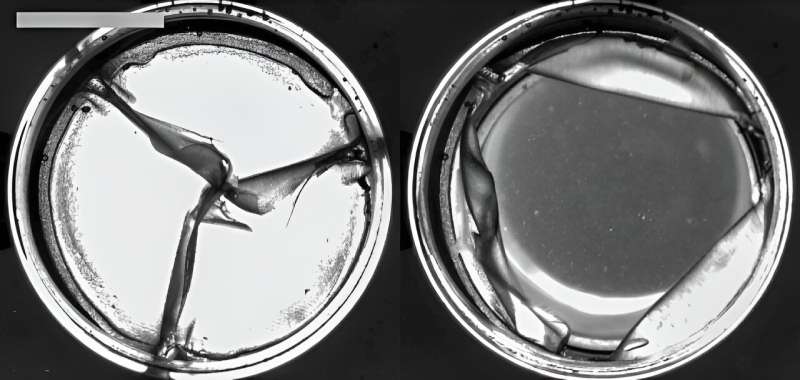Home » Health News »
A heart valve that grows with a pediatric patient

A prototype of an expanding artificial heart valve could make a big dent in the number of surgeries that many kids born with congenital heart disease need.
The problem: Many children receive prosthetic valves that help save their lives, but the valves cannot grow with the child.
“We need to replace the valve once, twice, up to four times to replace a valve that’s too small, but each of these open-heart surgeries comes with significant risks,” says David Kalfa, MD, Ph.D., a pediatric surgeon at Columbia University Vagelos College of Physicians and Surgeons whose lab created the prototype in collaboration with Jeffrey Kysar, Ph.D., professor of mechanical engineering.
Their study is published in the journal Macromolecular Bioscience.
An artificial heart valve that grows with the child could eliminate these risks.
The latest prototype from the team is built from a biocompatible polyurethane that closely matches the stretchiness of natural heart valves. To increase the size of the valve, a balloon catheter is inflated within the valve.
“Because the polymeric material can deform permanently, the valve stretches and then remains at that new larger size to accommodate the growing child—until it needs to be stretched again,” Kysar says.
Testing of the valve demonstrated the feasibility of the concept, and the team is now building prototypes with improved materials and preparing to test their designs in animal models.
Source: Read Full Article


